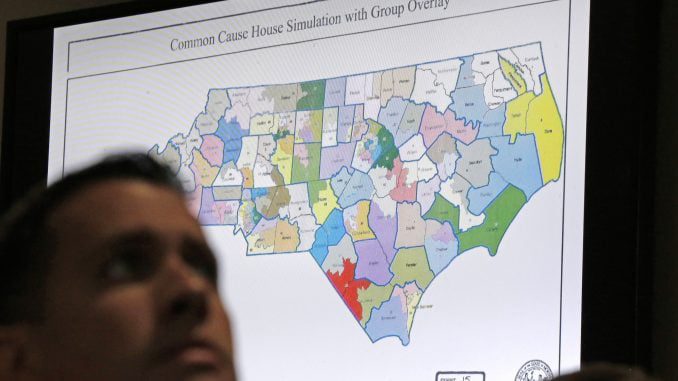
RALEIGH — North Carolina judges have officially delayed candidate filing for the state’s congressional seats while they sort out whether replacement districts approved by Republicans who lost another political gerrymandering case should be used for next year’s elections.
The three-judge panel’s order, filed Thursday, means election officials can’t accept congressional candidate paperwork when the three-week filing period begins for other 2020 races on Dec. 2.
On the same day, the judges will hold a hearing that will address whether a lawsuit filed by voters challenging the previous district lines should end because the General Assembly enacted a new map last week. State election officials have said the congressional primary could still be held March 3 as previously scheduled if a final map is set by Dec. 15.
Ten of the 13 current U.S. House members are Republicans in a state considered a presidential battleground and where Democrats remain the state’s largest bloc of registered voters.
The new map would appear to give Republicans an 8-5 seat advantage, threatening the reelections of GOP Reps. George Holding of Raleigh and Mark Walker of Greensboro.
In a court filing, lawyers for the Democratic and unaffiliated voters who sued contend the new districts are just “another extreme and obvious partisan gerrymander that violates the constitutional rights of North Carolina voters.” They want the court to officially declare the 2016 map unlawful and redraw the map.
They say 10 of the districts remain extreme partisan outliers compared to “nonpartisan” maps created by a redistricting expert, packing Democrats into five districts so that the others are noncompetitive. The lawsuit has been bankrolled by a national Democratic group.
Republican lawmakers who were sued over the 2016 map say the replacement map is fair and responded to input from Democrats and the public. They had asked the state judges last week to dismiss the lawsuit soon so candidate filing could begin as scheduled.
The GOP-controlled General Assembly was ordered in September to redraw dozens of state legislative districts by these same judges, who declared those boundaries were illegal partisan gerrymanders, too.



